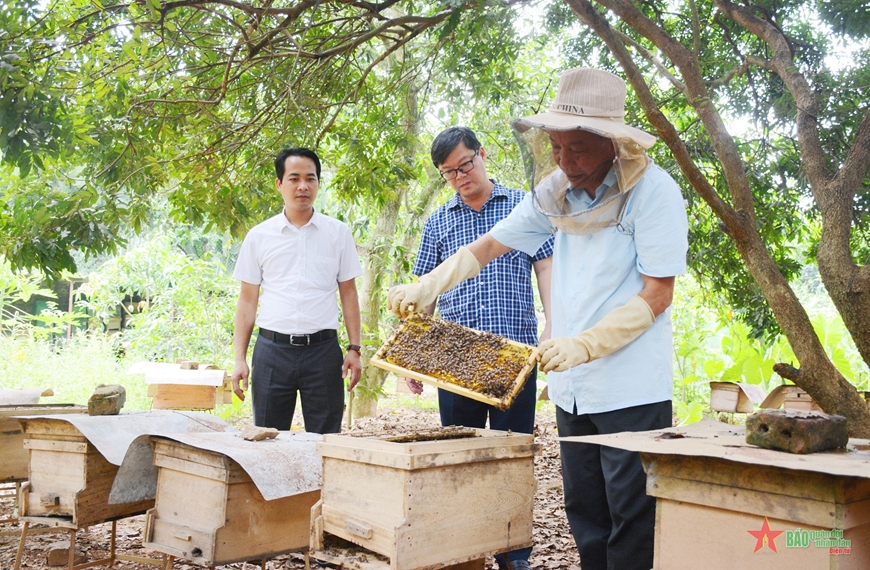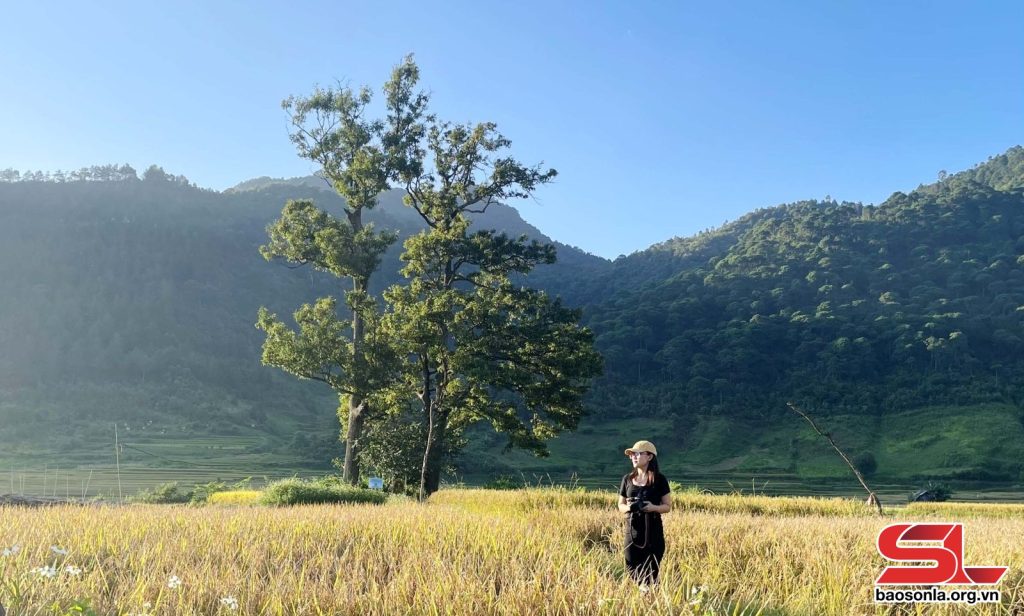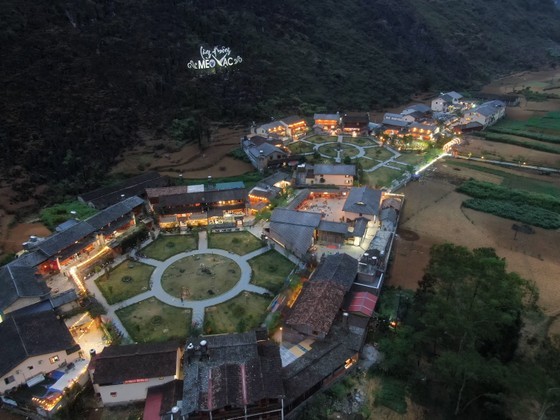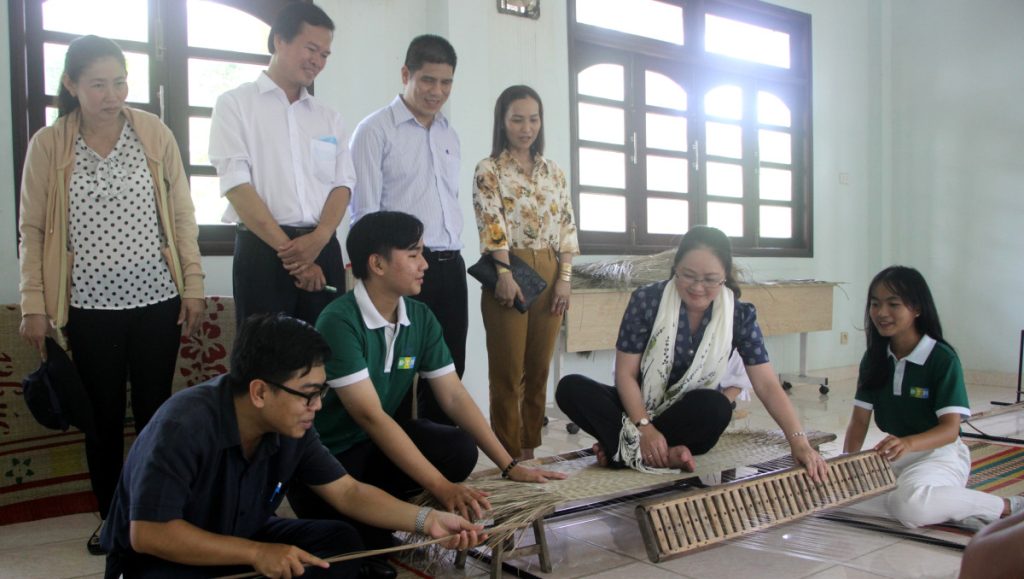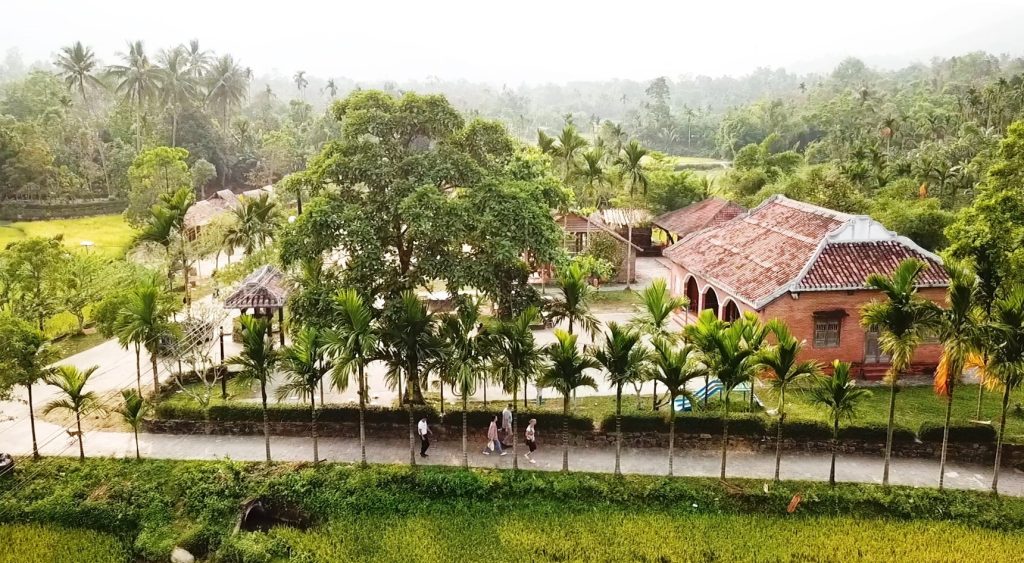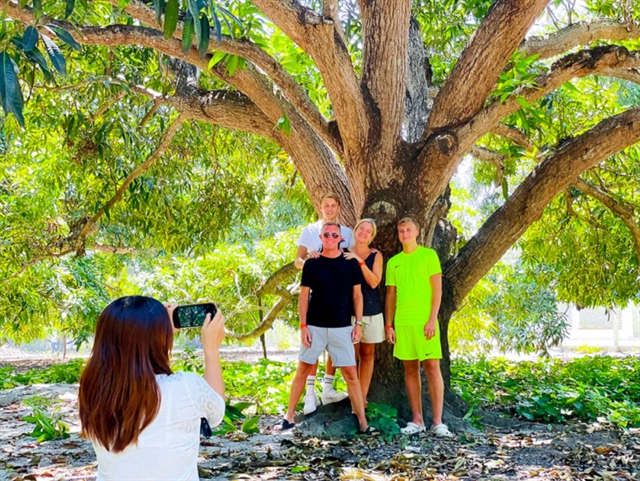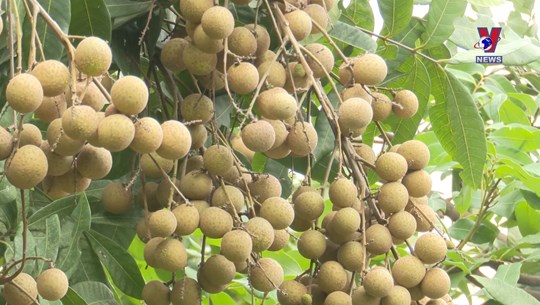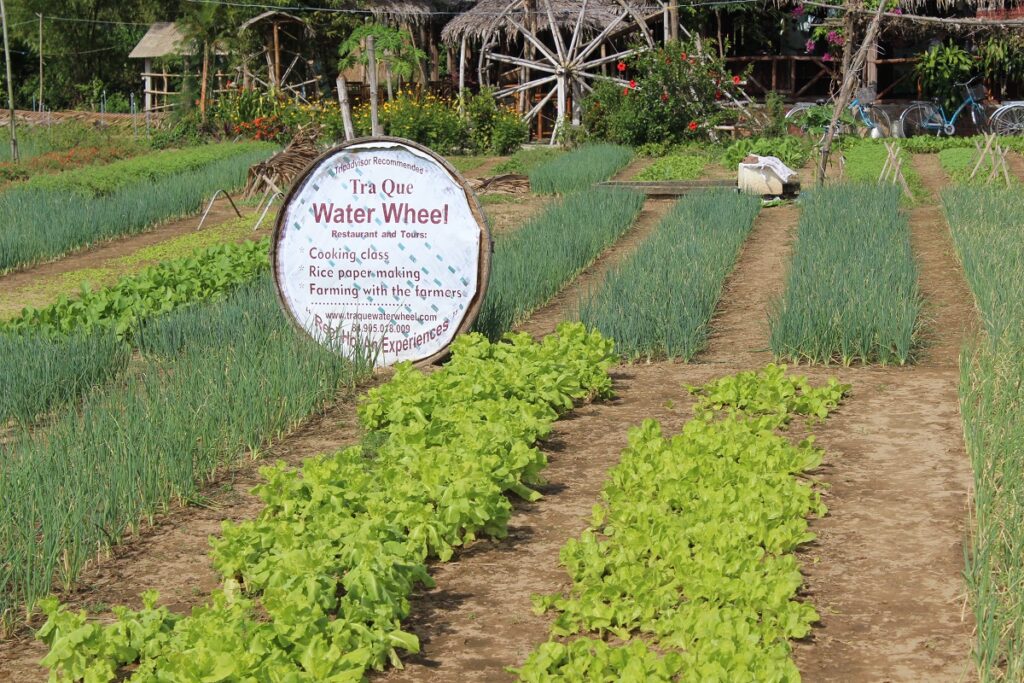
(TITC) – Just three kilometers northeast of Hoi An Ancient Town lies Tra Que Vegetable Village – a tranquil countryside haven and one of Vietnam’s most unique cultural destinations. Famous for its lush gardens and centuries-old farming traditions, the village invites visitors to slow down, reconnect with nature, and discover the essence of Vietnamese cuisine through a truly immersive experience: the journey “from vegetable garden to table.”
A Culinary Journey That Begins in the Fields
What sets Tra Que apart from regular cooking classes is that the adventure starts right in the gardens. Guided by a local farmer or chef, visitors stroll along winding village paths, breathing in the crisp air and the fragrance of herbs. Vegetables here are grown organically, fertilized only with seaweed from Tra Que Lagoon instead of chemicals – a traditional method passed down for generations.
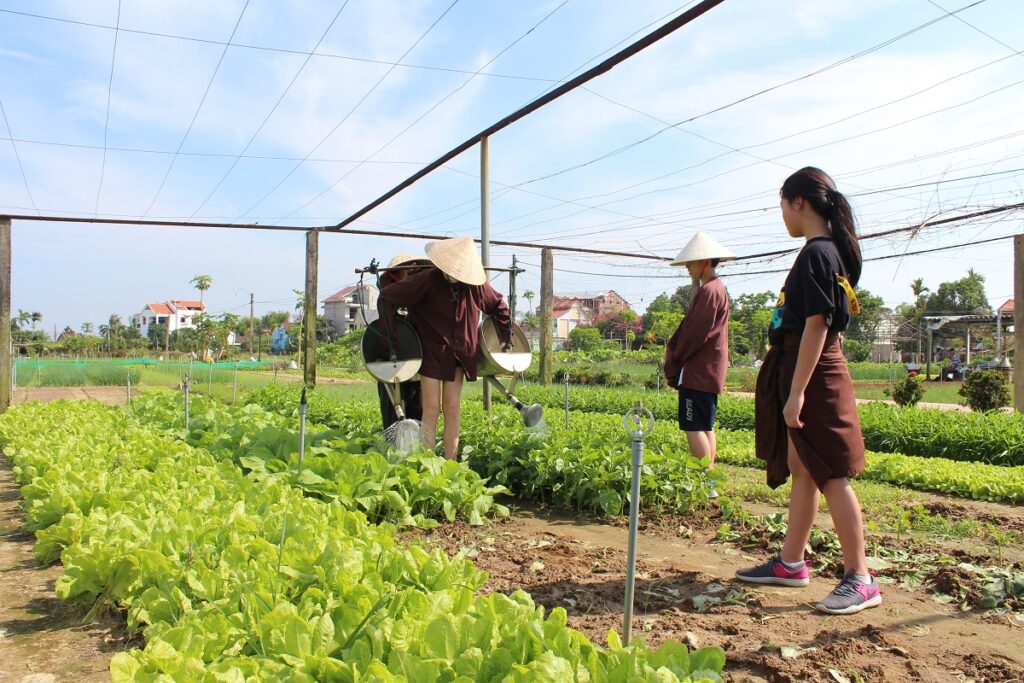
Guests then roll up their sleeves to harvest their own ingredients. Handpicking fragrant basil, peppery coriander, refreshing water spinach, and aromatic Vietnamese coriander is more than just collecting vegetables – it is a sensory experience. Pulling each plant from the soil, feeling its crisp freshness, and listening to the rustle of leaves in the breeze creates a genuine connection to nature and to the food soon to be prepared.
From Garden to Kitchen
After gathering enough produce, visitors return to a charming kitchen designed in the style of Hoi An’s ancient houses. The atmosphere is lively yet relaxed, filled with the sound of chopping and the aroma of fresh herbs. Under the patient guidance of local chefs, participants learn how to prepare dishes step by step, while also hearing stories about Vietnamese culinary culture and the symbolic meanings behind each recipe.
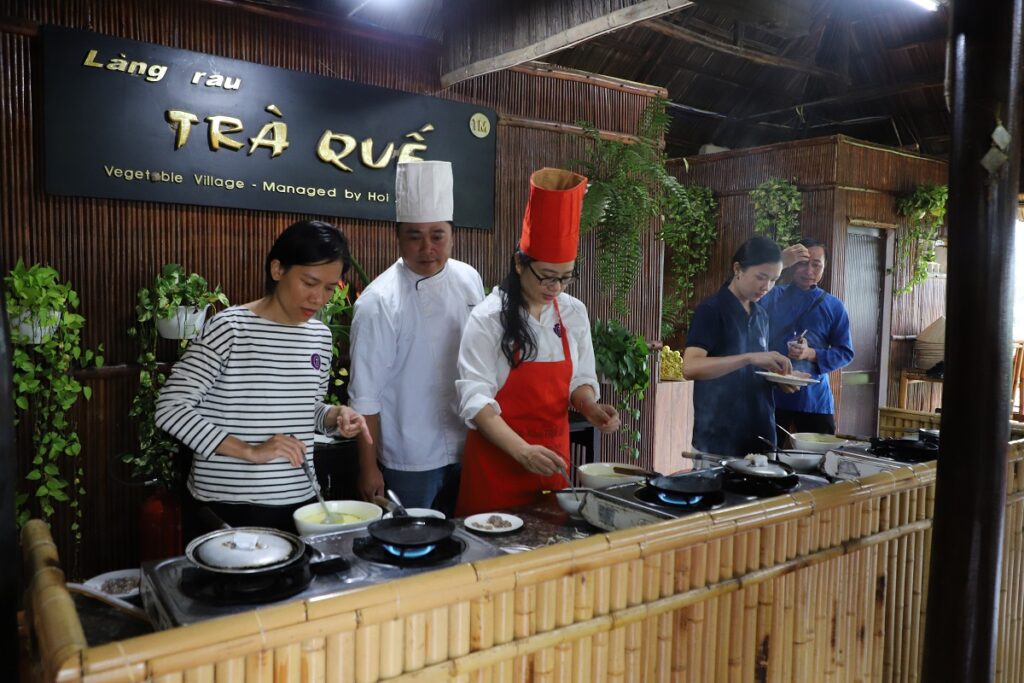
Unlike standard cooking demonstrations, the class at Tra Que is hands-on. Guests are encouraged to do everything themselves – from mixing the perfect sweet-and-sour dipping sauce, to carefully rolling fresh spring rolls, to grilling skewers of meat over glowing charcoal.
Typical dishes include regional favorites such as Banh Xeo (crispy Vietnamese pancakes), Nem Lui (grilled pork skewers), Goi Cuon (fresh spring rolls), and Pho Cuon (rolled pho). Each dish highlights the balance of flavors that Vietnamese cuisine is known for: the freshness of herbs, the richness of meat, the tang of dipping sauce, and the hint of spice that ties it all together.
A Feast of Flavors and Emotions
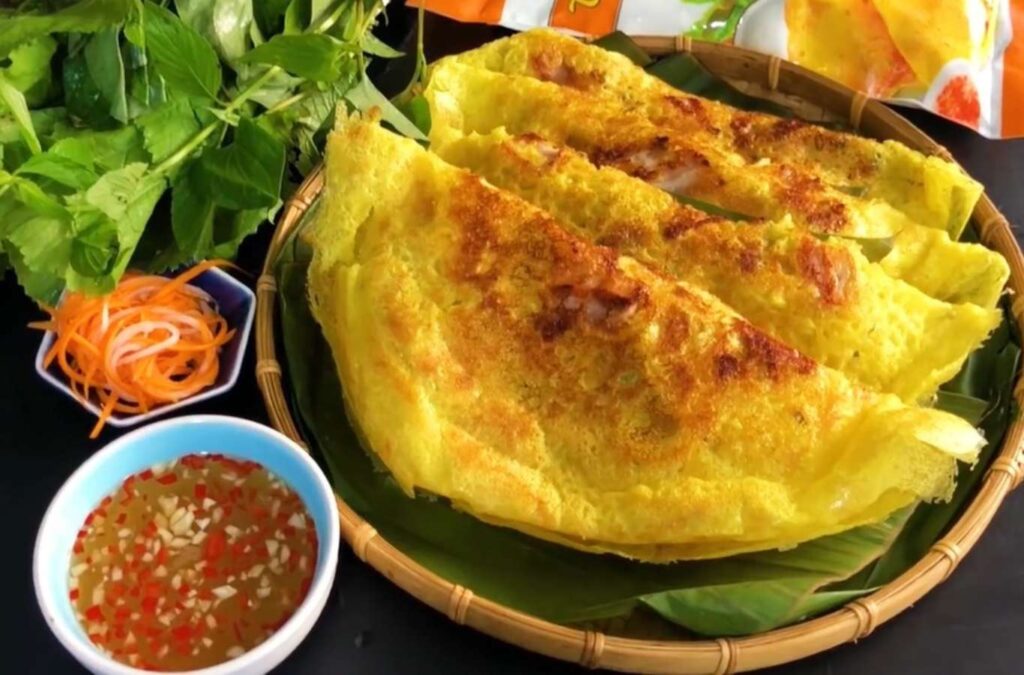
After two to three hours of preparation, participants gather around the table to enjoy the fruits of their labor. The meal is more than just nourishment – it is a feast for the senses and the heart. Tasting the vegetables you harvested just hours before, paired with dishes crafted by your own hands, brings a satisfaction that goes beyond food.
The experience also carries a deeper message: an appreciation for the land, the farmers who tend it, and the cultural values that have been preserved through generations. Visitors often leave with not just full stomachs but also lasting memories and a newfound respect for the connection between people, nature, and cuisine.
A Village with Centuries of Heritage
Tra Que Vegetable Village was established in the 16th century on a fertile river island surrounded by the Co Co River and Tra Que Lagoon. Thanks to its favorable climate and rich soil, the area has long been ideal for growing vegetables, allowing the community to develop and sustain its distinctive organic farming practices.
This cultural and agricultural heritage has earned the village international recognition. On November 14, 2024, at the 122nd session of the Executive Council of the United Nations Tourism Organization (UN Tourism) in Cartagena de Indias, Colombia, Tra Que was honored as one of the “Best Tourism Villages” of 2024.
An Unforgettable Experience
For travelers looking beyond sightseeing, a visit to Tra Que Vegetable Village offers something truly special: the chance to live like a local, learn through doing, and taste the essence of Vietnam in every bite. More than just a cooking class, it is a meaningful cultural journey – a reminder that cuisine is not only about food, but also about the stories, traditions, and connections that bring people together.
Tourism Information Technology Center


